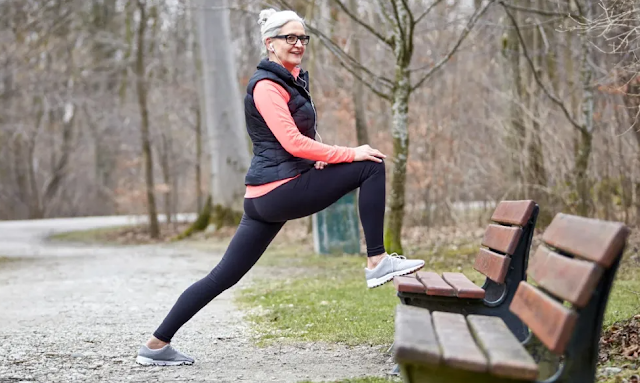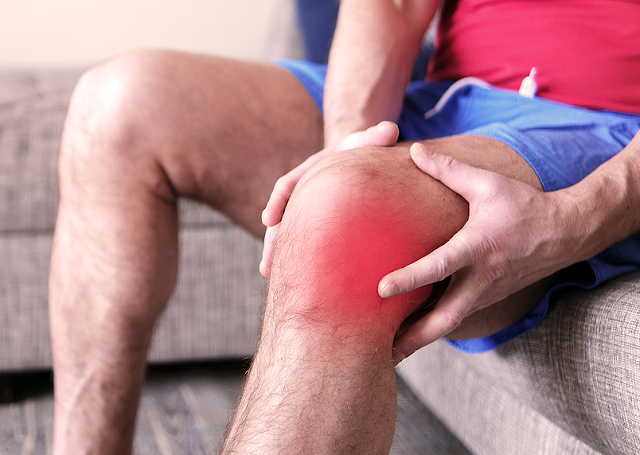Arthritis, a chronic condition characterized by joint inflammation, affects millions of people worldwide, profoundly impacting their daily lives. It is a diverse and complex condition, encompassing various types such as osteoarthritis, rheumatoid arthritis, and psoriatic arthritis. The symptoms of arthritis, including joint pain, stiffness, swelling, and reduced mobility, can significantly impair a person's ability to perform routine activities and enjoy a fulfilling life. From simple tasks like getting out of bed or tying shoelaces to engaging in hobbies, work, and social interactions, arthritis poses unique challenges that require proactive management and coping strategies.
This article aims to explore the far-reaching impact of arthritis on daily life, shedding light on the physical, emotional, and social implications it entails. By understanding the multifaceted nature of arthritis, we can gain insight into effective coping mechanisms and strategies to help individuals with arthritis maintain a high quality of life and manage joint pain and stiffness.
Identifying Common Symptoms of Arthritis
Identifying common symptoms of arthritis is crucial for early detection and effective management of this debilitating condition. While arthritis encompasses different types, several symptoms tend to be shared across various forms. Joint pain is a hallmark symptom, characterized by discomfort, tenderness, and aching sensations in affected areas. Stiffness is another prevalent symptom, particularly noticeable in the morning or after periods of inactivity.
Swelling and redness around the joints are common signs of inflammation, often accompanied by warmth in the affected areas. Reduced range of motion and difficulty in performing routine tasks are indications of joint damage and deterioration. Fatigue and a general feeling of malaise are frequently reported by individuals with arthritis, which can further impact their daily activities and overall well-being. It's important to note that symptoms may vary in severity and frequency, depending on the type and stage of arthritis. By recognizing and acknowledging these common symptoms, individuals can seek timely medical attention, adopt appropriate coping strategies, and work with healthcare professionals to manage their condition effectively.
Lifestyle Adjustments for Arthritis Management
Lifestyle adjustments play a pivotal role in the management of arthritis, empowering individuals to take control of their condition and improve their quality of life. One key adjustment is adopting an anti-inflammatory diet, which involves incorporating foods rich in omega-3 fatty acids, antioxidants, and anti-inflammatory properties. This may include fish, nuts, leafy greens, berries, and spices like turmeric.
Regular exercise is another vital aspect: it helps maintain joint flexibility, strengthens muscles, and reduces pain. Low-impact activities such as swimming, walking, and yoga are particularly beneficial for individuals with arthritis. Additionally, incorporating rest and relaxation techniques into daily routines can help alleviate stress and manage arthritis flare-ups. This may involve practicing deep breathing exercises, mindfulness meditation, and engaging in activities that promote relaxation, such as reading, listening to music, or taking warm baths.
Making ergonomic modifications to the home and workspace, such as using supportive cushions, adjustable chairs, and assistive devices, can significantly reduce joint strain and discomfort. By proactively embracing these lifestyle adjustments, individuals with arthritis can experience enhanced mobility, reduced pain, and an overall improvement in their well-being.
Practical Tips for Easing Joint Pain and Stiffness
When it comes to easing joint pain and stiffness caused by arthritis, several practical tips can provide much-needed relief. One effective strategy is the use of heat and cold therapy. Applying a heating pad, or warm towel, or taking a warm bath can help relax muscles and increase blood flow to the affected joints, reducing pain and stiffness. Conversely, cold therapy, such as applying ice packs or using cold compresses, can help numb the area and reduce inflammation. Finding the right balance between heat and cold treatments can be a matter of personal preference and experimentation.
Another helpful approach is the utilization of assistive devices and adaptive equipment. Devices like jar openers, reacher grabbers, and walking aids can assist with tasks that may otherwise exacerbate joint pain. Using ergonomic tools and modifying everyday objects with cushioned grips can also alleviate strain on the joints, making activities like cooking and writing more manageable.
Creating an arthritis-friendly home and workspace is essential for minimizing joint discomfort. Simple modifications, such as installing handrails in the bathroom, using ergonomic chairs and keyboards, and ensuring proper lighting, can significantly reduce strain on the joints. Rearranging frequently used items to be within easy reach can minimize unnecessary bending and stretching.
Engaging in gentle exercises and stretches specifically tailored for arthritis can help improve joint flexibility and reduce pain. Working with a physical therapist or joining arthritis-specific exercise programs can provide guidance and ensure exercises are done correctly and safely.
Lastly, maintaining a healthy weight is crucial for managing joint pain. Excess weight puts additional stress on the joints, exacerbating pain and stiffness. By following a balanced diet and engaging in regular physical activity, individuals can achieve and maintain a healthy weight, reducing the burden on their joints.
By implementing these practical tips, individuals with arthritis can proactively ease joint pain and stiffness, enhancing their overall comfort and quality of life. It is important to consult with healthcare professionals or rheumatologists to determine the most suitable strategies and techniques for individual circumstances.
Seeking Support and Professional Help
Seeking support and professional help is a crucial aspect of effectively managing arthritis. Building a strong support network is invaluable for individuals facing the physical, emotional, and practical challenges of living with arthritis. Friends, family members, and support groups can provide understanding, encouragement, and a safe space to share experiences. These supportive relationships can help alleviate feelings of isolation and provide a sense of belonging. Additionally, exploring alternative therapies and treatments can offer additional relief. Alternative therapies such as acupuncture, massage, and herbal supplements have been found to provide some individuals with arthritis with symptom relief. It is important, however, to consult with healthcare professionals before trying any alternative treatments to ensure their safety and efficacy.
Consulting with healthcare professionals, including doctors, physical therapists, and rheumatologists, is essential for proper diagnosis, treatment planning, and ongoing care. These professionals can offer expert guidance tailored to individual needs, prescribe medication if necessary, and provide referrals to other specialists as required. They can also monitor the progression of the disease, make adjustments to treatment plans, and provide valuable education about managing arthritis. By seeking professional help, individuals with arthritis can benefit from comprehensive care and access to the latest advancements in arthritis management, ultimately improving their overall well-being.
Psychological Well-being and Emotional Coping Strategies
Psychological well-being and emotional coping strategies are integral components of effectively managing arthritis. Living with chronic pain and the limitations it imposes can take a toll on mental health. Therefore, it is crucial to prioritize psychological well-being alongside physical management. Mindfulness and meditation practices can help individuals with arthritis cultivate a sense of calm and reduce stress, which in turn can alleviate pain and enhance overall well-being. Cognitive-behavioral techniques offer valuable tools for changing the perception of pain and managing negative thoughts associated with arthritis.
These strategies help individuals reframe their mindset, challenge unhelpful beliefs, and develop adaptive coping mechanisms. Seeking psychological support through therapy or counseling can also be highly beneficial. Mental health professionals can provide a safe and supportive environment to explore emotions, develop effective coping strategies, and enhance resilience in the face of arthritis-related challenges.
Additionally, joining support groups specifically tailored to arthritis can foster connections with others who share similar experiences, providing validation, understanding, and a platform for sharing coping strategies. By addressing the psychological aspects of living with arthritis, individuals can enhance their emotional well-being, develop effective coping strategies, and ultimately improve their overall quality of life.
Future Outlook and Advances in Arthritis Management
The future outlook for arthritis management is promising, as ongoing research and advancements continue to offer new possibilities for improved treatment and care. Emerging treatments and medications are being developed to target the underlying causes of arthritis, aiming to halt disease progression and alleviate symptoms more effectively. Biologic therapies, for instance, have shown promise in managing various forms of arthritis by targeting specific molecules involved in the inflammatory process. Furthermore, technological innovations are transforming arthritis management. Wearable devices and smart technologies can monitor joint movement, provide real-time feedback on activity levels, and offer personalized exercise and lifestyle modification recommendations.
These innovations empower individuals with arthritis to actively engage in self-management and track their progress more accurately. Additionally, research and clinical trials play a critical role in advancing arthritis care. By participating in clinical trials, individuals can contribute to the development of new treatments, therapies, and interventions, potentially leading to breakthroughs in arthritis management. Furthermore, research efforts are focused on identifying genetic markers and risk factors, enhancing early detection, and developing personalized treatment approaches. As the field of arthritis research continues to expand, the future holds great potential for improved understanding, more targeted therapies, and ultimately, enhanced outcomes for individuals living with arthritis.
Conclusion:
In conclusion, living with arthritis does not have to mean a life of limitations and constant pain. By embracing an active and fulfilling life with arthritis, individuals can effectively manage their symptoms, reduce joint pain, and improve their overall well-being. Through lifestyle adjustments such as adopting an anti-inflammatory diet, engaging in regular exercise, and incorporating rest and relaxation techniques, individuals can find relief and regain control over their daily activities. Seeking support from friends, family, and support groups, as well as professional help from healthcare providers ensures a comprehensive approach to arthritis management. Additionally, focusing on psychological well-being and implementing emotional coping strategies can help individuals navigate the challenges of living with chronic pain. With advancements in treatments, technological innovations, and ongoing research, the future holds even more possibilities for improved arthritis care. By staying informed, proactive, and resilient, individuals with arthritis can embrace an active and fulfilling life, pursuing their passions, maintaining meaningful relationships, and enjoying the highest possible quality of life.







0 Comments